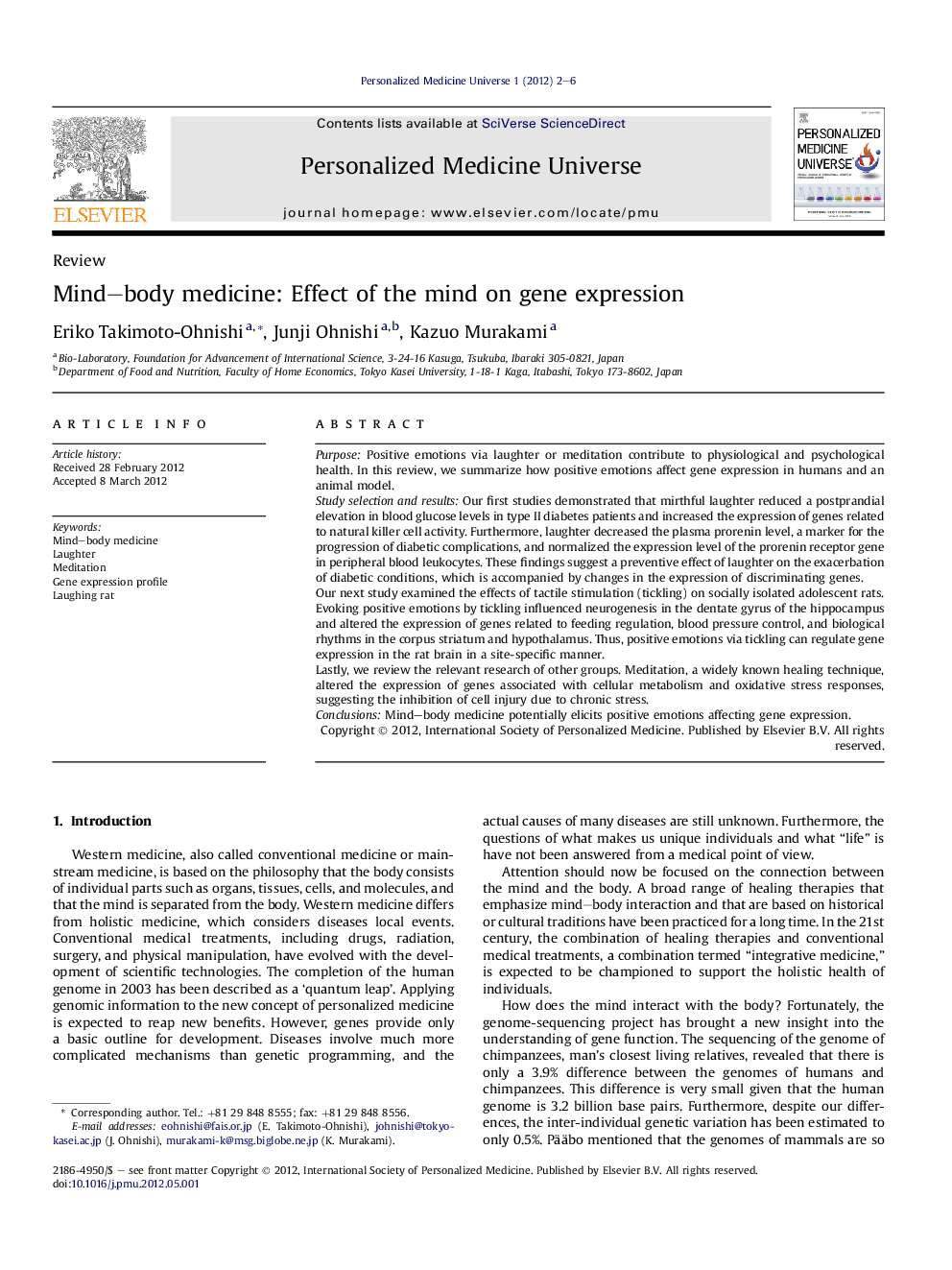| Article ID | Journal | Published Year | Pages | File Type |
|---|---|---|---|---|
| 3382659 | Personalized Medicine Universe | 2012 | 5 Pages |
PurposePositive emotions via laughter or meditation contribute to physiological and psychological health. In this review, we summarize how positive emotions affect gene expression in humans and an animal model.Study selection and resultsOur first studies demonstrated that mirthful laughter reduced a postprandial elevation in blood glucose levels in type II diabetes patients and increased the expression of genes related to natural killer cell activity. Furthermore, laughter decreased the plasma prorenin level, a marker for the progression of diabetic complications, and normalized the expression level of the prorenin receptor gene in peripheral blood leukocytes. These findings suggest a preventive effect of laughter on the exacerbation of diabetic conditions, which is accompanied by changes in the expression of discriminating genes.Our next study examined the effects of tactile stimulation (tickling) on socially isolated adolescent rats. Evoking positive emotions by tickling influenced neurogenesis in the dentate gyrus of the hippocampus and altered the expression of genes related to feeding regulation, blood pressure control, and biological rhythms in the corpus striatum and hypothalamus. Thus, positive emotions via tickling can regulate gene expression in the rat brain in a site-specific manner.Lastly, we review the relevant research of other groups. Meditation, a widely known healing technique, altered the expression of genes associated with cellular metabolism and oxidative stress responses, suggesting the inhibition of cell injury due to chronic stress.ConclusionsMind–body medicine potentially elicits positive emotions affecting gene expression.
